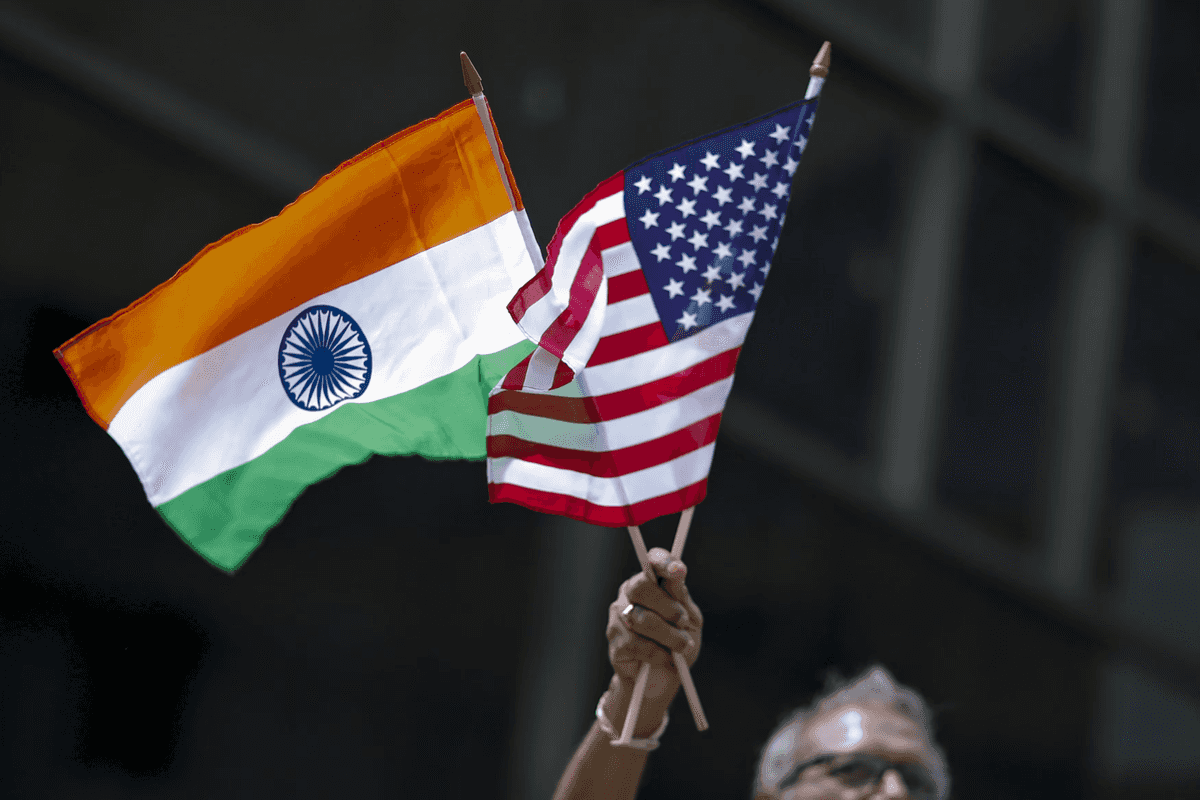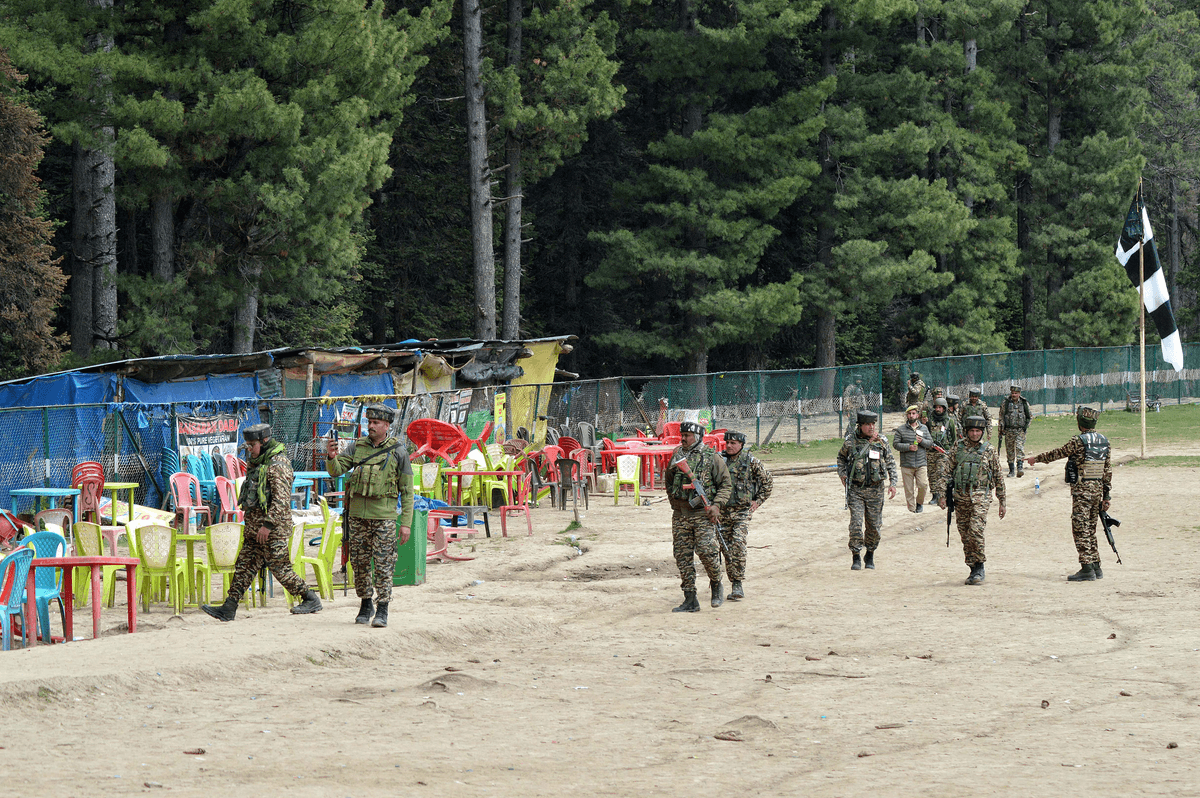What does the US blacklisting of TRF really mean for India and Pakistan?
India has welcomed the move, Pakistan has rejected it, while analysts have taken a more nuanced view
Azhar Khan
Producer, Karachi Desk
Azhar Khan is a journalist with over 14 years of experience across print, electronic, and predominantly digital media. He has recently held key editorial roles at leading media organizations.

It wasn’t gunfire or diplomacy that made headlines in South Asia this time -- it was a label.
With a stroke of a pen, the United States designated The Resistance Front (TRF) a global terrorist group -- spotlighting a little-known Kashmir-based outfit and prompting sharply divergent reactions from India and Pakistan.
The move has amplified long-running disputes between New Delhi and Islamabad over cross-border militancy, international credibility, and the politics of perception.
The designation -- as both a Foreign Terrorist Organization (FTO) and a Specially Designated Global Terrorist (SDGT) -- comes in the wake of the April attack in Pahalgam, a tourist hub in Indian-administered Kashmir, which left 26 civilians dead. Though initially obscure, TRF has now become the latest flashpoint in the subcontinent’s tangled security story.
India has hailed the U.S. decision as overdue international validation of its claims that Pakistan continues to harbor and enable rebranded militant outfits. New Delhi insists TRF is a reincarnation of Lashkar-e-Taiba (LeT), the Pakistan-based group accused of orchestrating the 2008 Mumbai attacks -- and already sanctioned by the United States.
“This is a strong affirmation of India-US counterterrorism cooperation,” said Indian Foreign Minister Subrahmanyam Jaishankar on X, calling the move a “clear message to terror proxies hiding under new names.”
Across the border, Pakistan has pushed back forcefully. Islamabad has denied any role in the Pahalgam incident and maintains that groups like LeT have long been banned and dismantled. In a sharply worded statement, the Foreign Office said that linking Pakistan to the attack “belies ground realities,” emphasizing that the investigation into the assault remains “inconclusive.” It also reiterated the need for “objective and non-discriminatory” global counterterrorism efforts.
Former Pakistani Foreign Secretary Aizaz Chaudhry dismissed the move as largely procedural.
The US listing of TRF as a terrorist entity -- I see this as a routine activity where the US has been listing any such organizations suspected of indulging in terrorism. So, by no stretch of imagination does it endorse India’s narrative.
Fog of claims and denials
The April 22 assault not only shook the region with its human toll but also triggered a rapid and volatile escalation between the nuclear-armed neighbors. India responded with cross-border airstrikes, and hostilities flared until a U.S.-brokered ceasefire took hold in early May.
TRF had initially claimed responsibility via Telegram -- a claim it later retracted. Still, Washington appears convinced of the group’s culpability. Secretary of State Marco Rubio, backing the move, described the designation as fulfilling President Trump’s “call for justice for the Pahalgam attack.”

TRF’s rise traces back to India’s 2019 revocation of its administered Kashmir’s special constitutional status and the subsequent communications blackout. According to Al Jazeera, the group emerged as a “virtual front,” pushing nationalist rhetoric online in a bid to rebrand armed resistance in more secular tones. Indian officials saw this as a deliberate strategy to repackage militancy under a new identity.
The U.S. Treasury has echoed India’s view, calling TRF a “front and proxy” for LeT since its formation -- reinforcing New Delhi’s argument that the group is essentially old wine in a new bottle.
However, Pakistan’s former UN ambassador Zameer Akram says that while India may treat the designation as a diplomatic win, the U.S. has carefully avoided endorsing India’s core allegation -- that Islamabad was directly involved.
“The U.S. statement makes no connection with Pakistan nor does it call upon Pakistan to take action against TRF,” Akram told Nukta.
So, even after listing the TRF as terrorists, Washington has refrained from endorsing New Delhi’s accusations against Islamabad.
Pakistan, meanwhile, continues to highlight its counterterrorism credentials — including its role in capturing the Islamic State affiliate behind the 2021 Kabul airport bombing. Officials in Islamabad argue that the TRF designation risks becoming another political tool for India to deflect attention from alleged rights violations in Kashmir.
Chaudhry argued that the move does little to alter Islamabad’s position. “Pakistan has proscribed Lashkar and other militant organizations and complied with all FATF and UN monitoring requirements. There is no reason why this U.S. action undermines Pakistan’s stance,” he said, adding that New Delhi, not Islamabad, owes the world an explanation for “taking 31 innocent lives” in what he called “a rash act of aggression.”
Strategic symbolism or diplomatic signal?
While the designation is rooted in U.S. domestic law, analysts say it carries broader symbolic and strategic weight -- particularly in a region where optics shape outcomes.
For India, it may bolster efforts to deepen counterterrorism partnerships and validate its long-standing position on Pakistan-based threats. For Pakistan, it poses a renewed challenge to its post-FATF diplomacy, just as it seeks to project a rehabilitated image on the global stage.
Ambassador Akram believes that Trump’s relative restraint - in contrast to prior administrations that explicitly named Pakistan -- reflects a more transactional approach. “So far Trump has not made this accusation publicly,” Akram said.
“This could be due to his desire to play the role of dealmaker, business or mining interests in Pakistan -- or simply because he’s upset with Modi for downplaying Trump’s role in ending the May crisis.”
In the uneasy calm following the ceasefire, both countries now face a familiar dilemma as they try to assert their narratives without reigniting a crisis neither can afford.







Comments
See what people are discussing